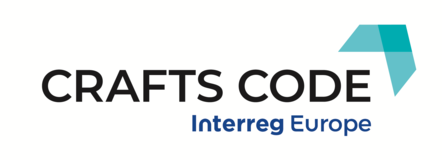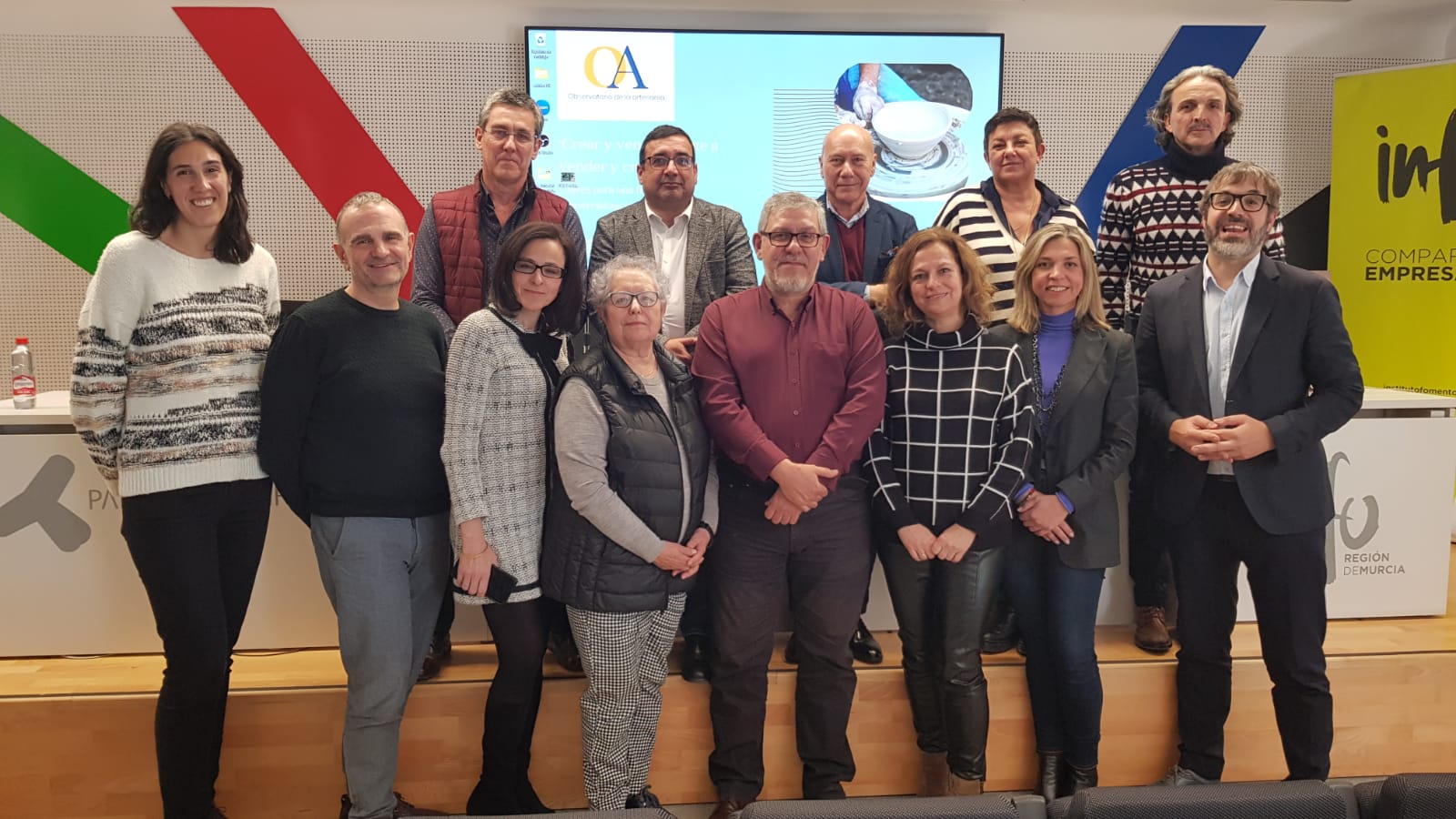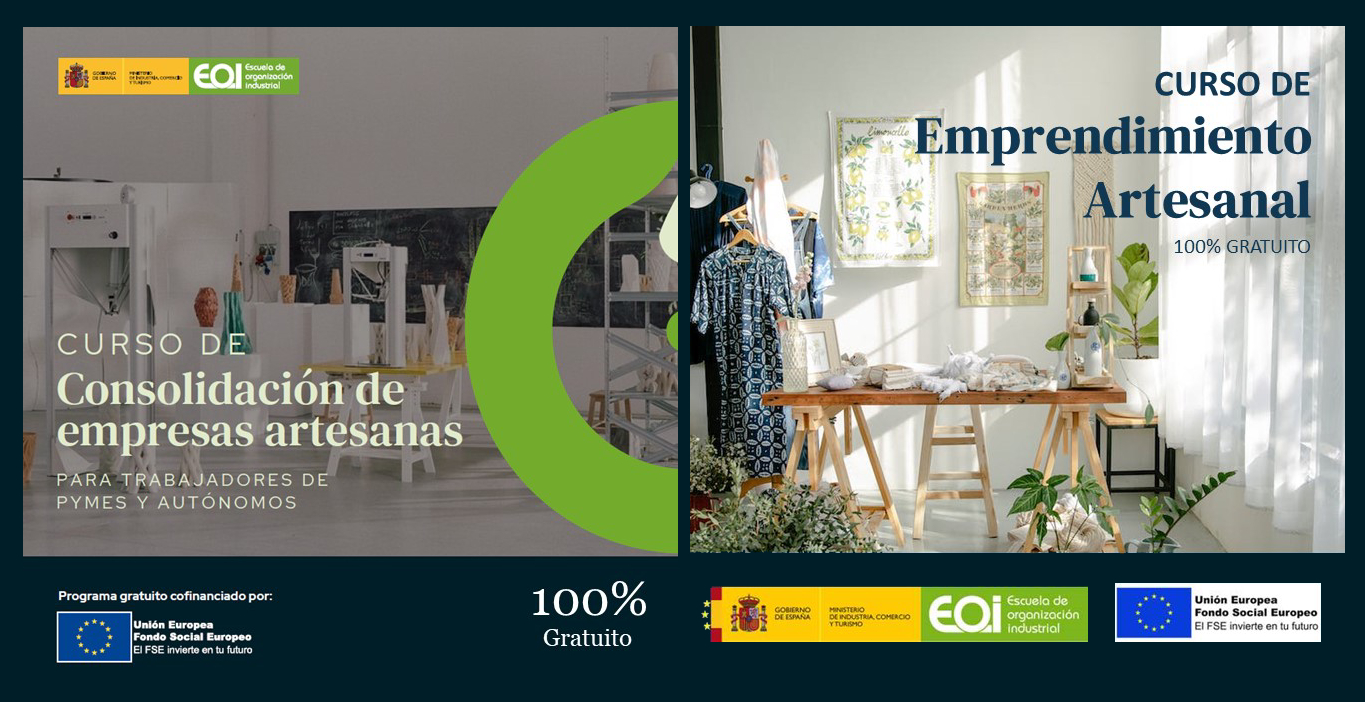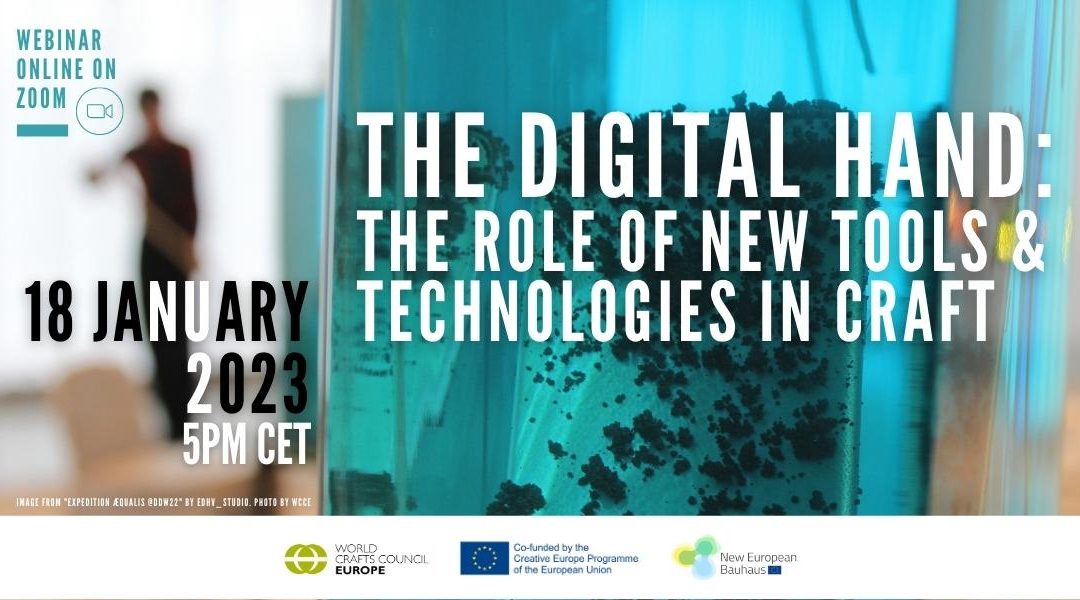On the 10 and 11 May 2021, CRAFTS CODE held its 3rd Interregional Thematic Seminar online.
The audience of over 250 people throughout the two days heard about 'Good Practices' which responded to the topic 'How to innovate the craft sector'. This two-day online seminar included presentations from craft SMEs, organisations and stakeholders in Ireland, Hungary, Bulgaria, Finland, Italy and Spain.
On day 1, the audience of over 160 people were officially welcomed to the webinar by Rosemary Steen, CEO, Design & Crafts Council Ireland and host of the two day event. We then heard a presentation from Mariella Devos (Academy of Fine Arts) on 'OLD skool NEW ways (technology, materials, shapes)'.
Ireland presented two good practices: 'Innovation Vouchers' and 'Strategic Design for Innovation'. Mike Dolan, Enterprise Ireland, presented on the Innovation Voucher initiative, which was developed to build links between Ireland's public Knowledge Providers and small businesses. Innovation Vouchers worth €5,000 are available to assist a company or companies to explore a business opportunity or problem with a registered knowledge provider. The next presentation was by Lynne Whelan, Design Strategist at Design+ Technology Gateway, Institute of Technology, Carlow, who presented on 'Strategic Design for Innovation'. The innovation voucher is just one gateway to access the programmes offered by Design+. Lynne spoke about how programmes such as 2020 Innovate, are helping SMEs to stimulate design driven innovation into their business models. She presented two craft case studies 'Mohu Designs' and 'McGuire Diamonds'. Alison Power from Mohu Designs spoke about how she worked with Design+ on the communication strategy for sales purposes and developed an extensive roadmap that directs for the diversification of revenue streams for her business.
In Spain, Kike Correcher presented on ‘D-Tool’, a self-assessment tool used to evaluate the design level of a company. The objective of this tool is to help organisations understand or discover the degree of use of design and how to improve this relationship to increase productivity, positioning or achieve excellence. The self-test is divided into four steps and will take no more than 12 minutes to complete.
On behalf of Hungary, Orsolya Springer presented on the ‘Handicraft Academy’. It is a complex support for craftsmen including the development of professional skills, access to finance and help in internationalization (e.g. participation in exhibitions, doing business with craft buyers).
Our Italian partner has added two more exciting additions to the webinar programme. The first good practice was called 'MakeX'. MakeX is the Tuscan Network of Digital Manufacturing, promoted by the Municipality of Cascina, financed by the Tuscany Region and coordinated by Polo Navacchio SpA. A network at the service of companies that want to innovate and of all those, creatives, artisans, students, onlookers who want to do, experiment and share. The second good practice to be presented by Italy was 'Preziosa Young'. The project aims to promote young artisans and artists under 35 years old; they are invited to present a project that illustrates the work in which they are currently involved. The contest selects a small group of candidates and offers them free of charge, the opportunity to present their work in an international context.
Next, Finland presented their two good practices to the group. The first presentation was BusinessMuovain which is an evaluation tool that helps creative entrepreneurs to plan, analyse and develop business ideas and to evaluate their potential. The second good practice was Strömsö, a Finnish lifestyle programme which promotes handicraft in everyday life through interesting ideas, handy tips and by inspiring people to work on handicrafts and creating trends. In Strömsö everything works out. Strömsö has become such a part of the daily life of the Finns that if something doesn’t work they say “it did not go like in Strömsö”.
Our Bulgarian partners, RAM Central Stara Planina and Ministry of Economy, presented a case study focused on an artisan and a teacher of ceramics who turned the limitations of Covid-19 into new possibilities. The artisan Nadezhda Hristova is a story about intergenerational learning and digitalization, smart experimentations and new approaches.
Day 2, featured an insight into the work of Design & Crafts Council Ireland and how as a national agency for craft, it is supporting the craft and design sector. The audience of over 100 people heard about some interesting DCCI programmes including 'Future Makers', 'Made Local' and 'Portfolio'.
We also had guest presentations by:
- Alexandra Beaudouet 'Pôle Européen de la Ceramique' and Interreg Europe 'CLAY project'
- Celine Vogt, Michelangelo Foundation, 'Homo Faber Guide'
- Maeve Murphy, Benchspace, Cork
- John Walsh, TU Dublin, CRAFT 4.0
You can watch the full recordings here:











